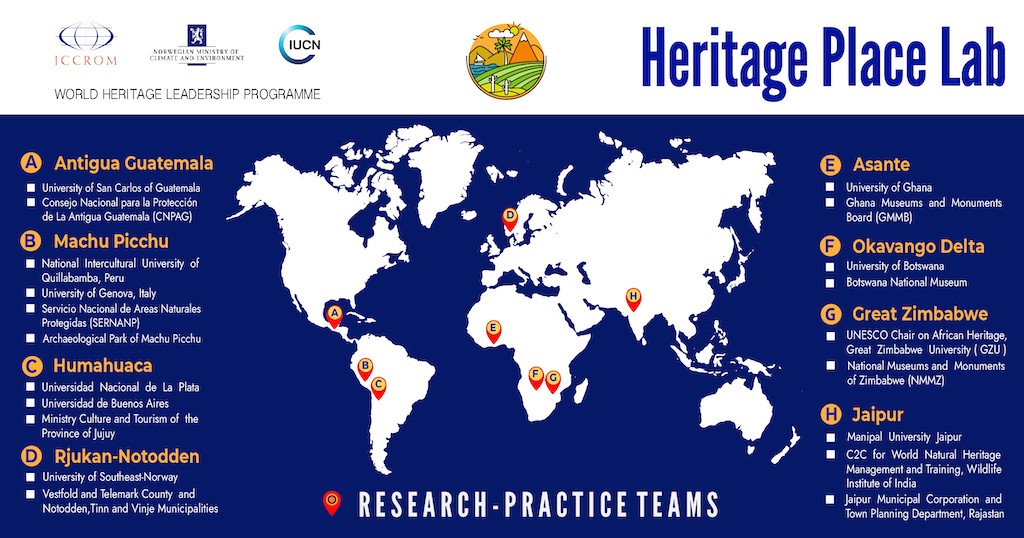Research-practice teams from eight World Heritage properties across Africa, Asia, Europe and Latin America joined the pilot phase of this unique online incubator last year. Now they are preparing their practice-led research agendas, with plans to publish their insights and achievements
Launched in May 2021, the Heritage Place Lab is a capacity building activity from the ICCROM-IUCN World Heritage Leadership (WHL) programme, focused on strengthening networks across research and site management within the context of implementing the World Heritage Convention.
It aims to facilitate and support research-practice teams in defining practice-oriented research agendas for World Heritage properties.
At the same time, the WHL programme is looking to strengthen cooperation with management and research institutions to develop practice-relevant research proposals that could later be used to apply for research funds.
Following an international call for applications, eight research-practice teams from the following World Heritage properties were selected to participate in the pilot phase:
- Asante Traditional Buildings, Ghana
- Antigua Guatemala, Guatemala
- Great Zimbabwe National Monument, Zimbabwe
- Jaipur City, Rajasthan, India
- Historic Sanctuary of Machu Picchu, Peru
- Okavango Delta, Botswana
- Quebrada de Humahuaca, Argentina
- Rjukan-Notodden Industrial Heritage Site, Norway
Involving 20 institutions, more than 60 professionals and researchers and 30 resource people worldwide, the pilot phase provided valuable practice and research insights into the Heritage Place Lab’s processes.
Between September 2021 and April 2022, the teams participated in six online workshops focusing on:
- models for research-practice cooperation (Workshop I)
- knowledge system dialogues (Workshop II)
- building collaborative practice-led research agendas (Workshop III)
- partnering for collaborative research (workshop IV)
- building practice-led research proposals and projects (Workshop V); and
- publishing outcomes of the Heritage Place Lab (Workshop VI).
Between workshops, the teams worked together on assignments to identify existing management issues and research needs related to their World Heritage places. They mapped the values and attributes of their properties and the actors involved in managing and conserving them. Teams also assessed the factors affecting their heritage places and began working on their practice-led research agendas. A solution published on PANORAMA Nature-Culture portal explains more.
In the coming months, the teams will continue to develop a series of outputs they incubated during the workshops. This will culminate in the publication of a special issue of the Journal of Cultural Heritage Management and Sustainable Development (Emerald Publishing) next year, as well as an ICCROM publication sharing the research-practice model and the eight practice-led research agendas. There will also be eight PANORAMA Nature-Culture snapshot solutions showcasing the cooperation between research institutions and the authorities managing World Heritage sites.

